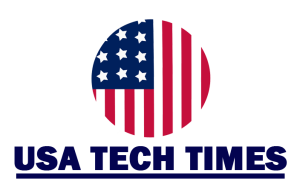How does The Franchise NOC support Model work for Broadband companies?
Nearly anywhere in the world, a Big Mac can be purchased. Is it so difficult to get affordable, reliable Internet service in different states and cities? Is it the quality of some providers that makes them more reliable than others? Is there a way to finance the growth of good internet providers faster so they can contribute to the national competition like a McDonald’s franchise?
There are numerous broadband recipes, whether it’s provided by ISPs, cable companies, or telecom companies. Quick-service restaurants such as McDonald’s built their brands around the convenience of rapid, consistent access to ingredients. McDonald’s stores are typically built at no cost to the national burger provider.
McDonald’s is regarded as the pioneer of standard supply operations. In summary, the broadband industry is finally reaching the point where fiber-based infrastructure and operating standards will drive the adoption of consistent, reliable access to the internet.
There is a shift in recent years from unattended, disconnected small services to large, regional, franchise-type service providers. A business model to drive Wall Street dividends has already shifted from one of driving to promote regional economic development for new deployments. An expansive set of design, deployment and operational standards is required for this concept – a rich collection of broadband “recipes” tailored to local stakeholders’ needs.
In the 1930s, electric utilities underwent a similar transition. Electricity had been a convenience of city life for decades in most urban areas. In rural areas, this was not the case. It was not uncommon for farmers to cook over wooden stoves, for children to do their homework by oil lamp, and for radio communication to be nonexistent. On May 20, 1936, President Franklin D. Roosevelt signed the Rural Electrification Act, which provided federal loans for the installation of electrical distribution systems in rural areas. The farmers and ranchers could borrow federal money and form local, consumer-owned electric cooperatives. In 1940, 567 cooperatives across the nation provided electricity to 1.5 million consumers in 46 states. More than 900 electric cooperatives are serving more than 40 million people in 47 states today.
Broadband providers are scrambling to deploy (mainly) fiber in response to the pandemic. The pandemic has pushed up the cost of fiber construction and material lead times, in particular. Moreover, it has fundamentally altered how short-term opportunities are perceived on broadband markets.
Franchise models have long solved their standardization problems. Broadband must now do the same, providing standardization of designs, construction, operations, and customer support. Furthermore, the broadband industry needs a better framework for collecting customer feedback and the sharing of best practices. Having this kind of data provides franchisees with the foundation they need to improve and introduce new services.
The feedback process accomplishes all of this by showing the difference between defined systems and fuzzy systems. A feedback system adjusts the input to a system f(x) to achieve the desired outcome. Defining a system without feedback is impossible.
Business is governed by the same principles. Feedback can be used by broadband service providers to measure customer satisfaction and to determine if they are meeting customer expectations. A service provider should use this kind of feedback to interpret trends in technology and anticipate future expectations. Customers’ feedback is rarely proactively incorporated into the business models of incumbent service providers. However, their local franchisees could eventually do the same, and many small deployers already do.
Historically, however, IT service industries have provided reactive customer support. It is only when a recurring problem occurs that feedback is incorporated into the business model in the form of updated customer support run books. Customers with unique, nonrepetitive problems are handled by senior support technicians at the network operations center.
Local NOC support technicians are notified as the trucks roll. In most cases, these problems are treated as one-offs and not incorporated into customer support. Further, service providers outsource support for truck-rolls to third-party NOC support companies that may or may not know about the particular network in question.
It’s tragic to see incumbent IT service providers’ underlying lack of awareness of the fact that unique and non-repetitive problems are often excellent indicators of industry trends and potential value-added services. They provide the kind of information (or feedback) required for proactive support systems and the introduction of new services. This is how businesses can build their brands and customers’ loyalty, as well as deploy future-proof IT services beyond the offerings of incumbent internet service providers. The franchiser is usually responsible for protecting the quality and service standards of franchise businesses.
Broadband NOCs can benefit from the Field Engineer platform
Visit Fieldengineer.com to hire a freelance NOC Engineer on the top freelance marketplace. You can connect with engineers who are looking for employment. There are 60,000 freelancers registered with it in 195 countries, making it the perfect channel for businesses to hire.










